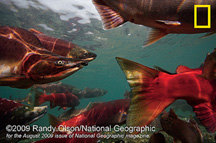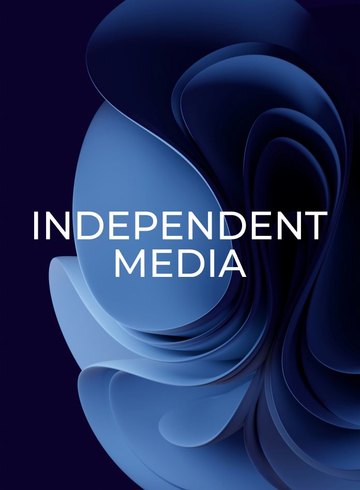National Geographic Highlights Ecological Problems

The August issue of National Geographic magazine - including the Russian version - contains material on the problem of poaching in Kamchatka. The issue will be read by 35 million people worldwide. The article describes how the illegal salmon catch in the rivers and seas of the Kamchatka Peninsula exceeds the officially registered yield.
The article reports that the salmon fishing industry on Kamchatka is one of the largest in the world. The reserves of "red gold" on the Kamchatka Peninsula represent at least 20 percent of the world's wild Pacific salmon reserves. The article reveals that for Kamchatka to remain the world's foremost salmon fishery, its rivers don't need to be restored; they need only to be protected from poaching, overcatch, oil and gas development, disruptive and poisonous mining, and other forms of shortsighted mistakes.
The article states that the lack of adequate protection and effective management will lead to permanent and irrevocable decline in the salmon population. Salmon are an important keystone species for natural ecosystems supporting bears, eagles, and scores of other wildlife and provide the foundation of the region's economy and social well-being.
Anatoly Dekshtein, Coordinator of the World Wildlife Fund's Marine Program on Kamchatka noted that, "We estimate the annual illegal salmon catch at 55,000 tons - more than double the legal salmon harvest in Canada." Corruption, depressed local economies, and a constantly changing management framework are some of the root causes for the region's poaching epidemic.
"The window of opportunity to save one of the last viable wild salmon strongholds on the planet is closing," says Guido Rahr, President of the Wild Salmon Center (WSC), an NGO dedicated to conserving salmon across the Pacific Rim. Together with local partners, WSC is working with Kamchatka's government to create a network of reserves to safeguard entire salmon watersheds, from the headwaters to the ocean.
The full English version of the article can be found on the National Geographic site. Readers can find the Russian version of the article in the August issue of NG Russia.
Additional information is available from the following sources:
Alexandra Filatkina, PR Coordinator for WWF's Kamchatka/Bering Ecoregion Division. Tel: +7 (41531) 7-17-67. Tel/Fax: +7 (4152) 411-94, afilatkina@wwf.ru;
Maria Vinokurova, Press Secretary for the WWF Moscow office. Tel: +7 (495) 727-09-39, mvinokurova@wwf.ru
National Geographic Magazine, Beth Foster, +1 (202) 557-9815,
Wild Salmon Center, David Finkel, +1 (971) 255-5568, .


